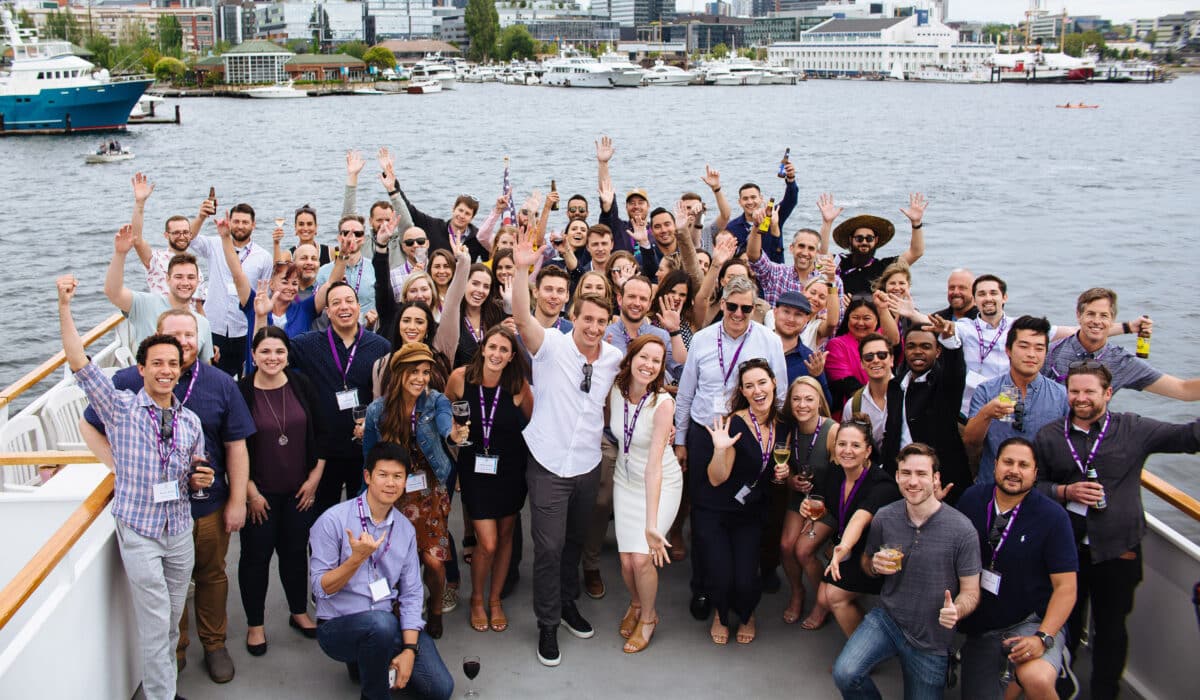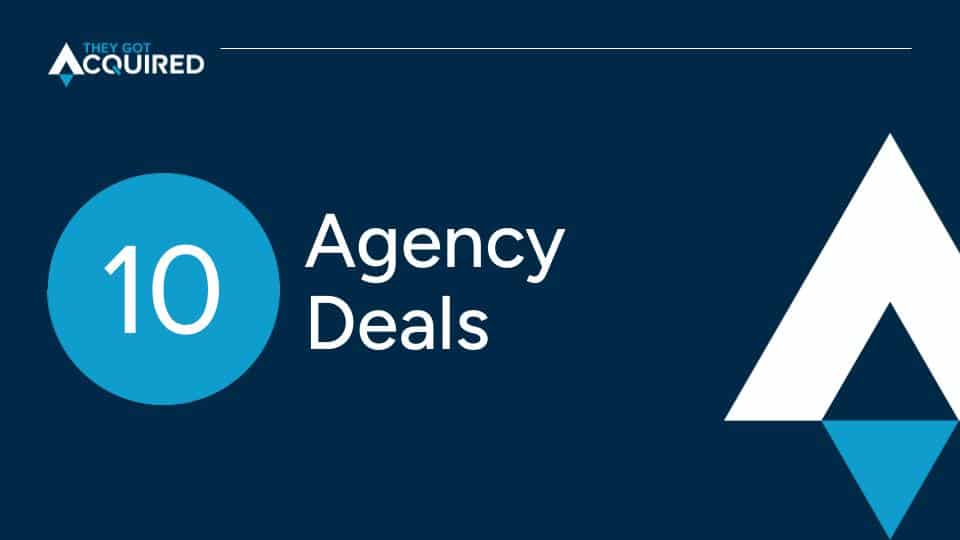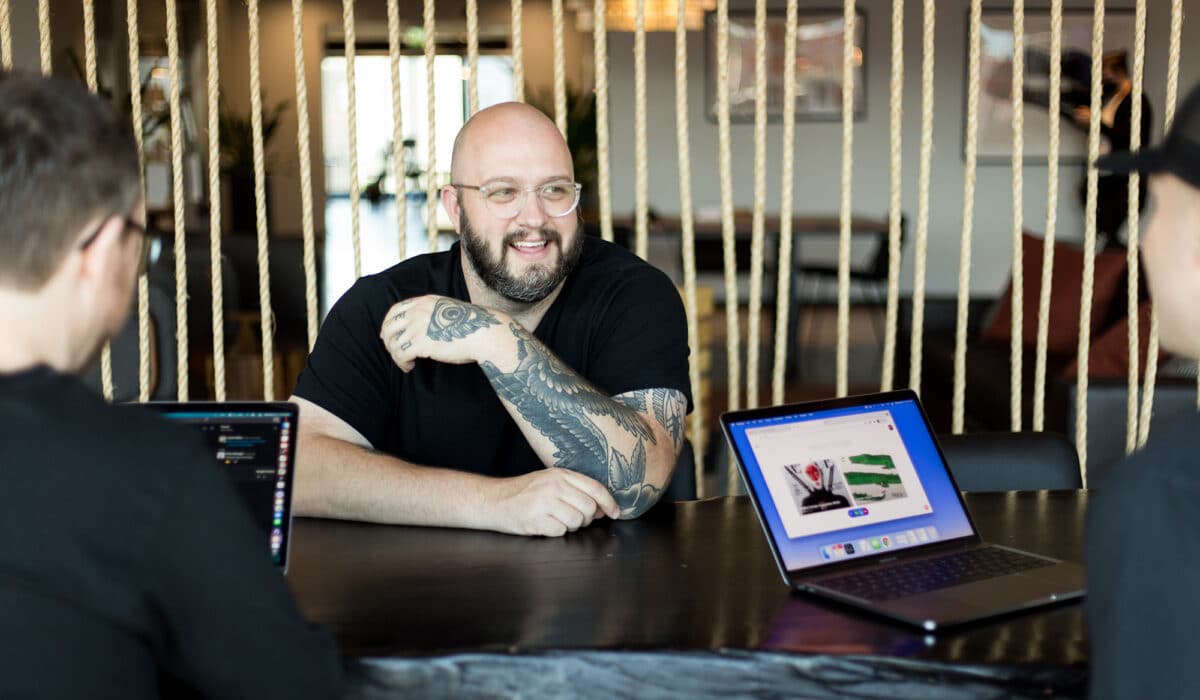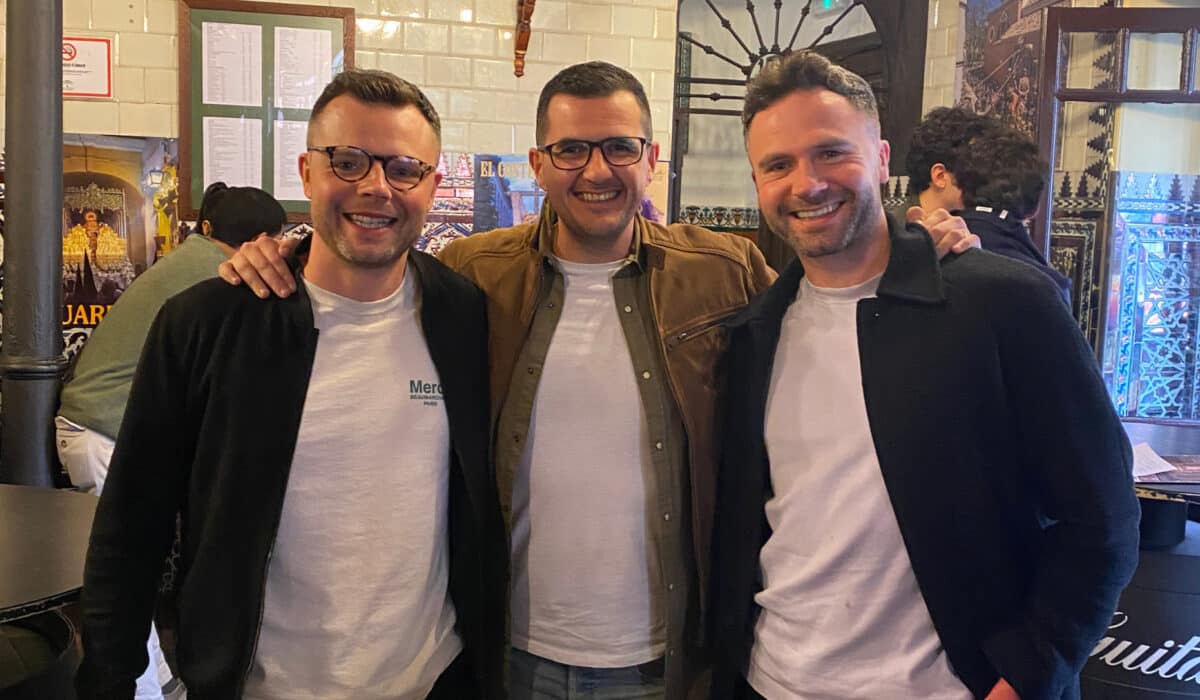At 35, Jon Claydon was hospitalized with shingles.
“I was trying to do 7 jobs at once and completely burning myself out,” the founder of Streamline Marketing told They Got Acquired.
It was 2019, and Claydon had been working 16- to 18-hour days leading his affiliate marketing agency. The painful rash had spread to his esophagus. It was so bad the ER doctor told him he could have died.
“It was my wake-up call,” Claydon said on the podcast Built to Sell.
Around the same time, he noted an industry trend: Big holding companies were rolling up affiliate marketing agencies comparable to Streamline.
Determined not to miss an opportunity — and to take better care of himself — Claydon became open to selling.
Differentiating Streamline Marketing from “nefarious actors”
In 2014, Claydon launched Streamline Marketing with a few other co-founders, including Samantha Parsons, but they all exited as time passed.
The Seattle-based marketing service firm built and managed affiliate programs for enterprise and high-growth brands, including Apple, Amazon, DoorDash, Expedia and T-Mobile.
On Built to Sell, Claydon explained the affiliate marketing industry doesn’t have the best reputation — and rightly so, in his opinion.
“There have been some nefarious actors in the space, and a lot of times you could really question what affiliates were doing to the brand — if it was incremental or not,” he said.
But Streamline was committed to providing brands with quality services by driving performance based on their objectives and key performance indicators.
For example, if a brand wanted to grow its new customer base, Streamline would build strategies to achieve this goal. That might include informing consumers of a particular product through affiliate channels, like blogs or influencers.
Claydon said transparency was also key to creating strong relationships with brands. Streamline built a proprietary analytics platform to track and measure clients’ campaigns. This enabled the account team to provide clients with performance insights and showcase Streamline’s value.
Streamline charged brands a flat retainer fee plus a fee based on performance — typically a percentage of revenue.
“Our pitch to the brand was that we’d cover our costs, but we’d be incentivized to hit performance benchmarks, so both Streamline and the brand wins,” Claydon said on Built to Sell.
At sale, Streamline Marketing’s 30 full-time employees — plus 5-10 contractors and support staff — served around 40 clients. Claydon said they managed well over $100 million in spend.
Claydon said Streamline did mid-7 figures in revenue with a healthy EBITDA (that’s earnings before interest, taxes, depreciation and amortization) of close to 50% of total revenue. This was due to strong performance campaigns that kept clients coming back — and operating lean, he shared on Built to Sell.
Instead of hiring a full marketing team, he outsourced some SEO work to a friend’s agency. Instead of hiring an in-house finance team, they outsourced a bookkeeper. They had one salesperson and otherwise largely relied on internal referrals and word of mouth.
The inflection point: finding a buyer for Streamline Marketing
In 2019 — the same year Claydon was hospitalized with shingles — Streamline Marketing hit an inflection point. Claydon could double down on infrastructure and continue to grow the company, but that would decrease his EBITDA and pressure him to ramp up revenue 4-5x to become attractive to a buyer again.
“I didn’t want the responsibility of getting there and wasn’t sure the market would even allow us to get to that size,” he told They Got Acquired.
Another option? Sell.
Claydon opted to forgo an M&A advisor — the industry isn’t big, and he was already well-connected. Soon, he was courting seven to eight buyers.
At the end of 2019, he signed an LOI, or a letter of intent, with an interested buyer, he explained on Built to Sell. However, the due diligence process became taxing without an intermediary. Then COVID-19 hit. Both parties decided to walk away.
As the pandemic progressed, e-commerce sales boomed. As a byproduct, Streamline’s clients were doing well, and Streamline’s services were in high demand. Business doubled, Claydon said.
In early Q4 2020, the initial interested buyer approached Claydon again, ready to strike up another LOI. Knowing he wasn’t willing to go through another back-and-forth, Claydon enlisted the help of an investment banker from Garros Group.
Then he heard through an acquaintance that Mountaingate Capital, a private equity investment firm, was partnering with Acceleration Partners (AP), an affiliate management agency. (See our story about that deal.)
“I had known Mountaingate for years and had a tremendous amount of respect for them and the team at AP,” Claydon said.
He was already having second thoughts about the initial buyer. Was it the right partner to grow with? The idea of getting acquired by a marketing agency like AP excited Claydon.
On a Friday evening in mid-November 2020, he got on a call, and Acceleration Partners made it clear they wanted to make Streamline an offer. On Sunday night, Claydon received an LOI. On Monday, he signed it. On Dec. 31, the deal closed for mid-7 figures in cash. With rolled-over equity, the total deal reached the low-8 figures, Claydon said.
“We are thrilled to be combining our forces to offer leading brands expanded senior-level strategy, increased global coverage, proprietary technology-enabled solutions, and the highest standard of affiliate and partner marketing program management,” Robert Glazer, founder and CEO of Acceleration Partners, said in a press release.
Reflecting on the acquisition and what’s next for Claydon
“The process to close was intense and grueling,” Claydon told us. “I basically didn’t sleep for a month.”
Claydon shared that the biggest challenge was timing. He had buyer interest and opportunities but struggled to feel confident in his timing. He second-guessed his decision even after signing an LOI, and due diligence was well underway.
“We probably would have had an amazing next couple of years, but the buyer might not have been there,” he said. He also noted the deal was lucrative for him because he got in early, so he’s seen substantial increases in his equity.
He said finding a good banker helped push him through to the finish line with the deal.
“They more than pay for themselves and will actually get a deal done,” he said. “It’s very difficult to do it yourself, and you have no idea how much work is actually involved in the due diligence process.”
Now, Claydon is the chief development officer at Acceleration Partners, where he has built out the company’s influencer practice and leads M&A for the company.
“I still love what I do, and now I just focus on the elements I enjoy,” he said. “I have offloaded all of the things I didn’t like about running an agency, like HR, finance and client work.”



